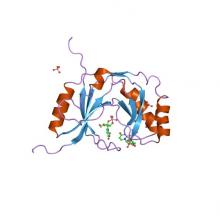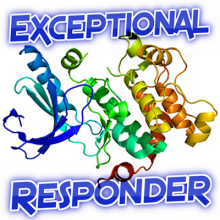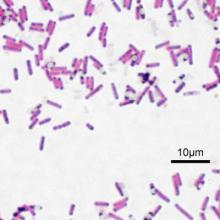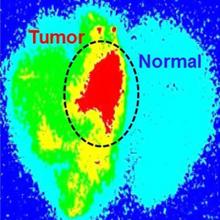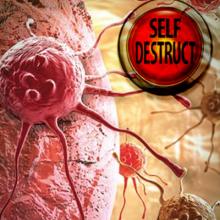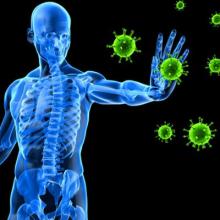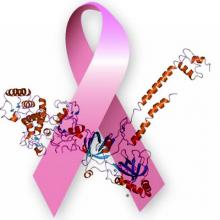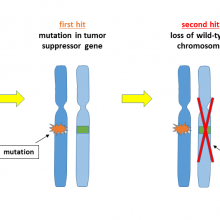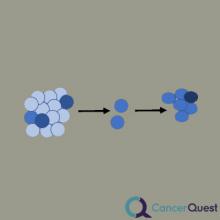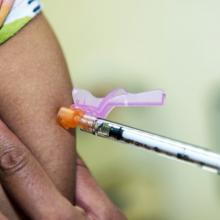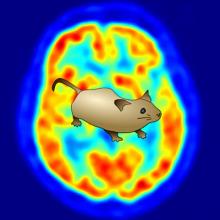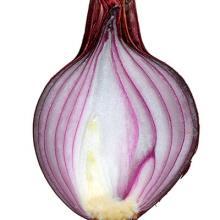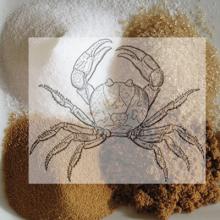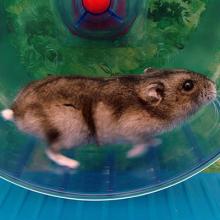Newsroom
Genetic variations make individuals unique, and that uniqueness also extends to cancer. A new study by the George Washington University Cancer Center has identified that African American men tend to have a genetic variation which makes their prostate cancer difficult to treat.
The particular… more
Everyone is different, and cancer patients respond differently to treatment. What can we learn from those patients who respond very differently from the bulk of people? A few years ago, researchers started to study ‘exceptional responders’. An exceptional responder is defined as a cancer patient… more
Trillions of bacteria live inside the human body, making up mini-ecosystems --microbiomes-- in places like the mouth, gut, and skin. Most of these bacteria are beneficial, helping humans to make or digest various chemicals. Research has increasingly shown that these microbes play a large role in… more
Detection is vital to treating any type of cancer. However, it is sometimes difficult fur surgeons to know exactly where the cancer cells are. That makes it harder to destroy all the cancer cells and spare the healthy ones.
Researchers at McGill University in Montreal have developed a cancer… more
Researchers from California Institute of Technology and UC San Diego have developed a drug that causes cancer cells to self-destruct. The drug works by blocking the cancer cells’ ability to clean up their ‘garbage,’ causing the cells to fill up with waste products. Eventually the cancer cells self-… more
Since 2010, multiple experiments have attempted to boost the immune system in leukemia patients. The treatment, developed at the University of Pennsylvania, involves removing millions of T-cells from the patient, genetically altering them to recognize the cancer cells and then putting them… more
Hair loss, including complete baldness, is a common, and upsetting, side effect of chemotherapy. One way that hair loss can be reduced is by wearing a 'cooling cap' during treatment. The low temperature reduces the blood supply to the scalp, and therefore reduces the amount of chemotherapy drug… more
Last month, researchers at the University of Texas at Austin examined 142 natural compounds and nutrients to see their effects on prostate cancer cells. A few of the nutrients were found to be more potent than some current cancer drugs. The researchers then fed the chemicals to mice with cancer and… more
One of cancer's most feared properties is its ability to spread (metastasize) and invade tissues. Cancer that has metastasized is often the most dangerous for patients. Researchers at Georgia Tech, however, may have discovered a way to prevent cancer cells from spreading. Using tiny gold particles… more
Breast cancers are frequently analyzed using MammaPrint, a test used to identify the key cancer-related genes in that particular cancer. This test can help patients and their physicians understand how dangerous their cancer might be, categorizing them by risk. Ultralow risk patients are those who… more
A study published in June of this year looked for evidence of increased hormone levels in women who take birth control pills. It was motivated by evidence that increased hormone levels are linked with breast cancer. The study examined variation in hormone levels in women taking seven different oral… more
CRISPR is a tool that can be used to edit DNA. New research shows that the method is also very good at detecting diseases and disease-causing microbes (viruses, and bacteria). CRISPR may also be a potent weapon to detect antibiotic resistance and cancer. CRISPR is able to detect the… more
One of the most common drugs used to treat breast cancer is tamoxifen. It works by blocking the activity of estrogen, reducing the growth of cancer cells. Despite the success of tamoxifen, many cancers eventually become resistant to its effects. The resistance has been shown to be… more
Apart from the possible appearance of genital warts, infection with the Human Papillomavirus (HPV) does not usually cause symptoms and the immune system usually rids the infected person of the virus within two-years. When the infection is not cleared, HPV can cause cervical cancer, oral cancer,… more
Glioblastoma is an aggressive brain cancer, and new treatments are needed. A team of researchers from China Pharmaceutical University has developed a new approach. The researchers loaded immune cells called neutrophils with a chemotherapy drug (paclitaxel), and injected the cells into mice that had… more
Not all cancer cells are equal. In many cancer types, a small percentage of cancer cells are thought to be the main force behind the growth and spread of tumors. These are called cancer stem cells (CSC). CSC don't respond well to many treatments, and are likely responsible for many… more
Although all e-cigarettes do not contain nicotine, researchers at the University of Connecticut have found that they may be as dangerous, in some ways, as unfiltered cigarettes. Through developments in 3D printing, the research team was able to see that e-cigarettes can cause just as much DNA… more
Onions contain quercetin, a type of plant chemical called a flavonoid. Some flavonoids have antiproliferative properties—that is, the ability to block the growth of cells. Recognizing the importance of this kind of molecule, researchers at the University of Guelph conducted a study with five types… more
Cancer cells are broken in many ways. One of those changes controls the way the cancer cells get the energy they need to live and reproduce. Cancer cells tend to use up sugar much more quickly than healthy cells. Research at the University of Texas has now shown that two different kinds of… more
Enriched environments prolonged the lifespan of mice with colon cancer. In a recent study led by Angus-Hill at the University of Utah, male and female mice with tumors in their colons, were exposed to environments that stimulated mental, social and physical activity. Interestingly, the enriched… more

